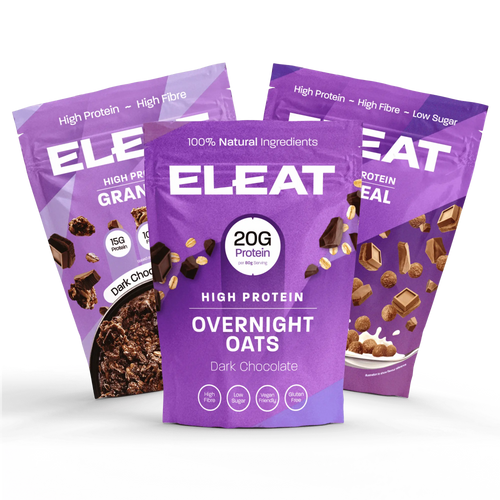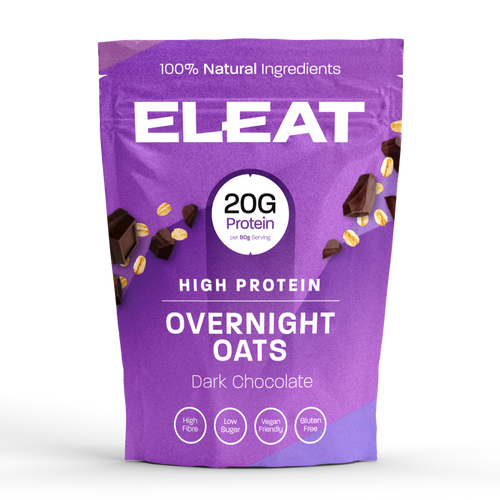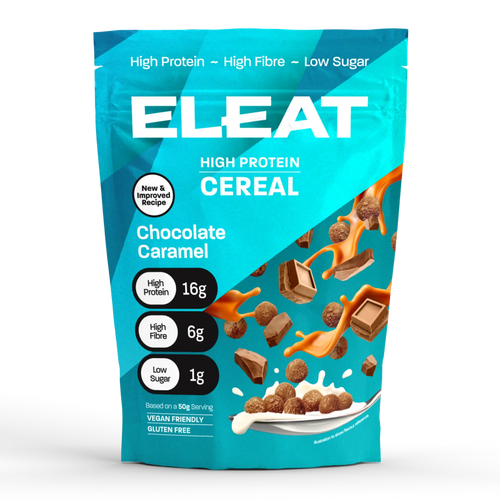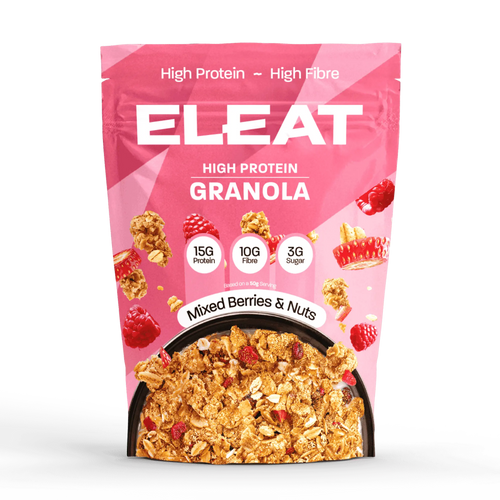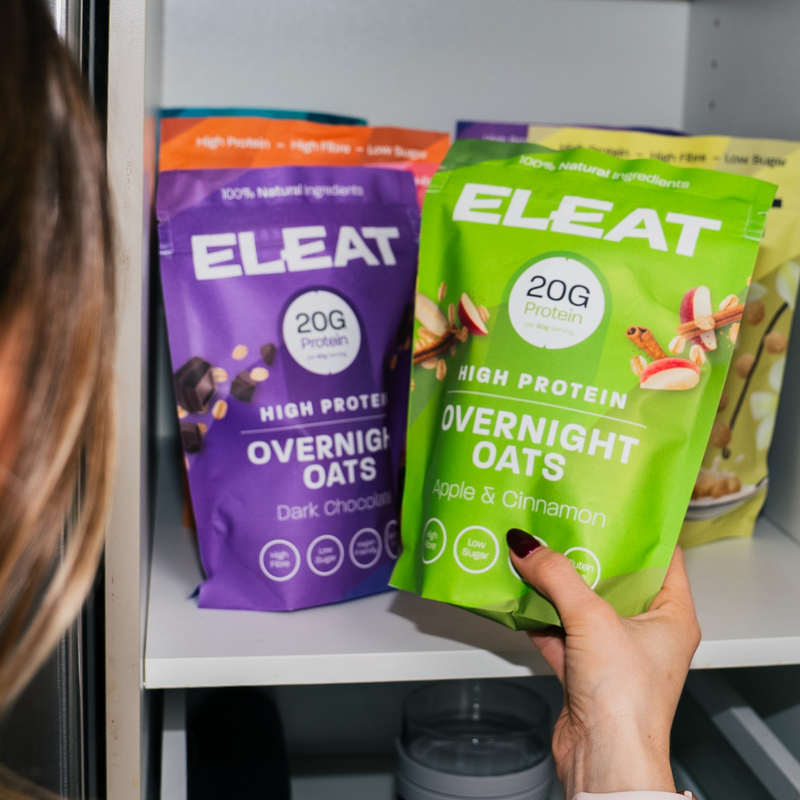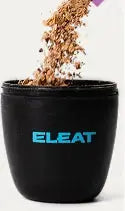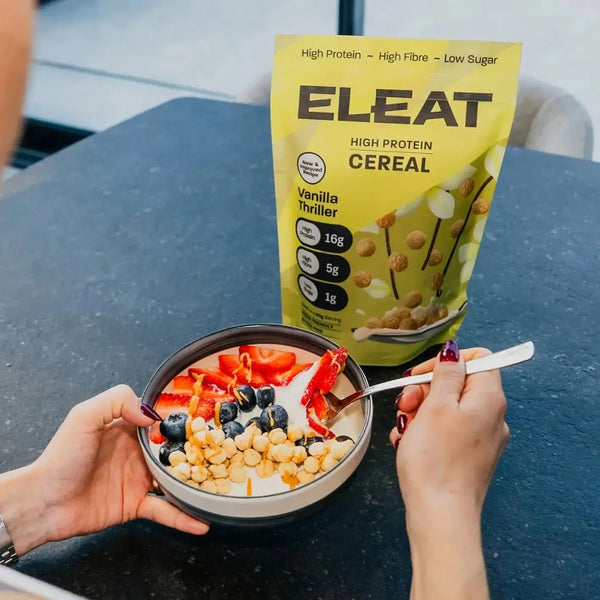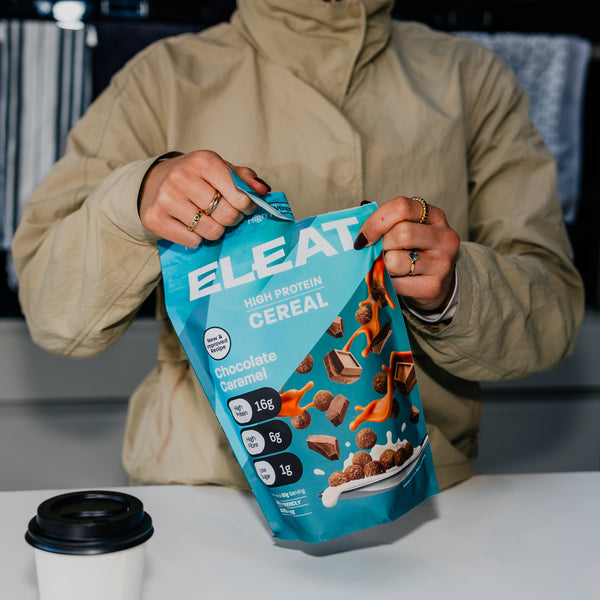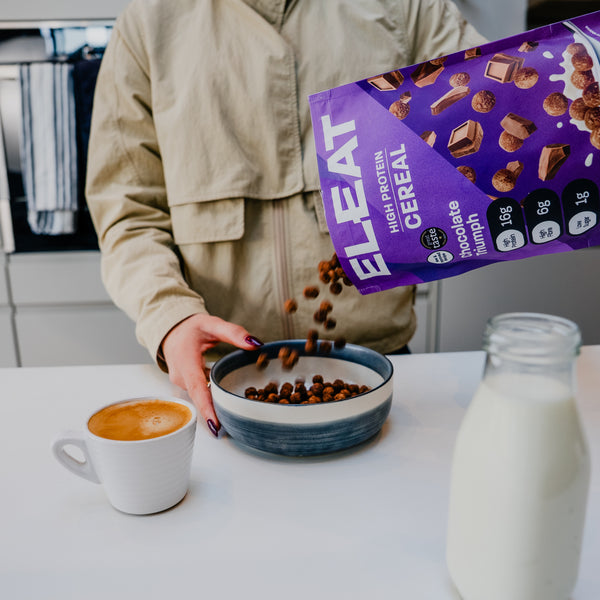In this article:
Did you know that protein makes up about 15% of your body weight? It plays a crucial role in building and repairing tissues, producing hormones, and supporting immune function. Despite its significance, many people struggle to consume enough protein daily, leading to a myriad of health issues. In today's fast-paced world, it's easy to overlook the essential nutrients our bodies require, but prioritising protein is key to maintaining a balanced diet.
This blog aims to shed light on the importance of high-protein foods and how they contribute to overall health and well-being. From muscle growth to energy levels, protein-rich foods offer numerous benefits that can help you lead a healthier lifestyle. You can expect to learn about various sources of protein—both animal-based and plant-based—practical meal ideas, and how to seamlessly incorporate these foods into your daily routine. By understanding the role of protein in your diet, you'll be better equipped to make informed dietary choices that enhance your health.

Understanding Protein
Protein is a macronutrient made up of amino acids, which are the building blocks of our body. Comprising carbon, hydrogen, oxygen, and nitrogen, proteins are essential for various biological processes. They play a crucial role in the structure of cells, tissues, and organs and are involved in numerous physiological functions.
The Importance of Protein
Protein is vital for several reasons. It aids in muscle repair and growth, making it particularly important for those who engage in regular physical activity. Protein is also essential for hormone production, immune system function, and the creation of enzymes that facilitate biochemical reactions in the body. Without adequate protein intake, our bodies may struggle to function optimally, leading to fatigue, muscle loss, and weakened immunity.
Benefits of Including High-Protein Foods In Your Diet
Muscle Growth and Repair
For active individuals, including high-protein foods in their diet is crucial for muscle health. Protein helps repair and build muscle tissues after exercise, promoting recovery and growth. This is especially important for athletes and those who engage in strength training.
Weight Management
High-protein foods are beneficial for weight management as they promote satiety. When you consume protein, it helps you feel full longer, reducing the likelihood of overeating or snacking on unhealthy foods. This can aid in weight loss and maintenance efforts.
Energy Levels
Protein contributes to stable energy levels throughout the day. Unlike simple carbohydrates that can cause energy spikes and crashes, protein provides a more sustained source of energy. Incorporating high-protein foods into your meals can help maintain consistent energy levels, keeping you focused and productive.
How To Incorporate High-Protein Foods Into Your Diet
Meal Ideas
Finding ways to incorporate high-protein foods into your meals can be both enjoyable and satisfying. Here are some practical meal ideas to get you started:
Breakfast
Kick off your day with scrambled eggs loaded with spinach and topped with a sprinkle of cheese for added flavour.
Alternatively, try a bowl of ELEAT high-protein cereal. Made with a blend of high-quality protein sources, this cereal is designed to keep you fuller for longer while providing essential nutrients. Pair it with your choice of milk or a dairy-free alternative and add some fresh fruit or nuts for a delicious, nutritious start to your day.
Lunch
Prepare a hearty quinoa salad mixed with chickpeas, diced vegetables (such as bell peppers and cucumbers), and a light vinaigrette. This combination not only provides protein but also a rich array of vitamins and minerals. For added convenience, consider adding grilled chicken or tofu to boost the protein content even further.
Dinner
For a satisfying dinner, grill some chicken breasts and serve them alongside steamed broccoli and a side of quinoa. This well-rounded meal is rich in protein and includes plenty of fiber and nutrients from the vegetables. You can also experiment with fish options like baked salmon, which is rich in protein and healthy omega-3 fatty acids.
Tips For Preparation
Meal prep can significantly ease your weekly cooking routine and ensure that you have high-protein options readily available. Here are some helpful tips:
Batch Cooking
Cook larger portions of protein-rich foods at the beginning of the week. For instance, grill several chicken breasts or bake a large batch of lentils. Store these in portioned containers for easy access during busy days. You can quickly throw together salads, wraps, or grain bowls using your prepped ingredients.
Experiment with Recipes
Try out new recipes that highlight high-protein foods. Explore options like chickpea burgers, lentil soups, or stuffed peppers filled with quinoa and black beans. The more you experiment, the more you’ll discover delicious ways to enjoy protein.
Portion Control
While it's important to include protein in every meal, also be mindful of portion sizes. A palm-sized portion of meat, a half-cup of legumes, or a serving of high-protein cereal can help you maintain a balanced diet.
Mix and Match
Combine different high-protein foods to create diverse meals. For instance, mix nuts and seeds into your ELEAT high-protein cereal for breakfast, and add beans to salads or tacos for lunch. This variety not only keeps your meals interesting but also ensures you’re getting a broad spectrum of nutrients.
Quick and Easy Options
For days when time is tight, keep high-protein snacks on hand, like Greek yoghurt, cottage cheese, or hard-boiled eggs. These are quick to prepare and packed with protein, making them ideal for busy lifestyles.
By thoughtfully incorporating these high-protein foods into your meals and snacks, you can effectively enhance your overall nutritional intake while enjoying a variety of flavours and textures. Prioritising protein not only supports your health goals but can also make your meals more satisfying and enjoyable.

Common Misconceptions About Protein
Myth vs Fact
One of the most pervasive misconceptions about protein is the belief that you can only obtain it from animal sources, such as meat, eggs, and dairy products. In reality, there are a plethora of plant-based protein sources that can meet your dietary needs. Foods like lentils, chickpeas, quinoa, nuts, and seeds are all excellent sources of protein.
For those following vegetarian or vegan diets, combining different plant proteins can ensure you get all the essential amino acids your body requires. This makes it entirely feasible to thrive on a plant-based diet without compromising your protein intake.
Another common myth is the notion that consuming too much protein can harm kidney function. While this concern is often cited, it's crucial to clarify that high protein intake is generally only problematic for individuals with pre-existing kidney conditions. For healthy individuals, the kidneys are fully capable of processing and excreting excess protein without adverse effects.
A higher protein intake can be beneficial for active individuals looking to support muscle repair and growth. However, moderation is key, and it’s always a good idea to consult with a healthcare provider if you have concerns about your protein consumption.
Balanced Approach
When it comes to diet, balance is paramount. While protein plays a crucial role in numerous bodily functions—such as muscle repair, hormone production, and immune support—it's equally important to include a variety of other macronutrients, particularly carbohydrates and fats. Carbohydrates serve as the body’s primary energy source, providing fuel for physical activity and brain function, while healthy fats are essential for nutrient absorption and overall cellular health.
A well-rounded diet that incorporates a diverse array of food groups will not only ensure adequate protein intake but will also promote optimal health. For example, pairing high-protein foods with whole grains, fruits, and vegetables creates meals that are not only satisfying but also packed with vitamins, minerals, and fibre. This holistic approach to nutrition helps maintain energy levels throughout the day, supports weight management, and reduces the risk of chronic diseases.
Conclusion
Incorporating high-protein foods into your diet is crucial for a balanced lifestyle. Protein supports tissue repair, hormone production, and immune function. It offers significant benefits, such as aiding muscle growth, weight management, and providing stable energy levels. Start your day with scrambled eggs or ELEAT high-protein cereal, enjoy a quinoa salad for lunch, and finish with grilled chicken for dinner to boost your nutritional intake.
It's important to dispel myths about protein sources; a variety of options exist beyond meat. A balanced diet enhances your health and well-being. Evaluate your protein intake and consider integrating more high-protein foods into your meals. Prioritising protein will lead you toward a healthier, more vibrant life.
